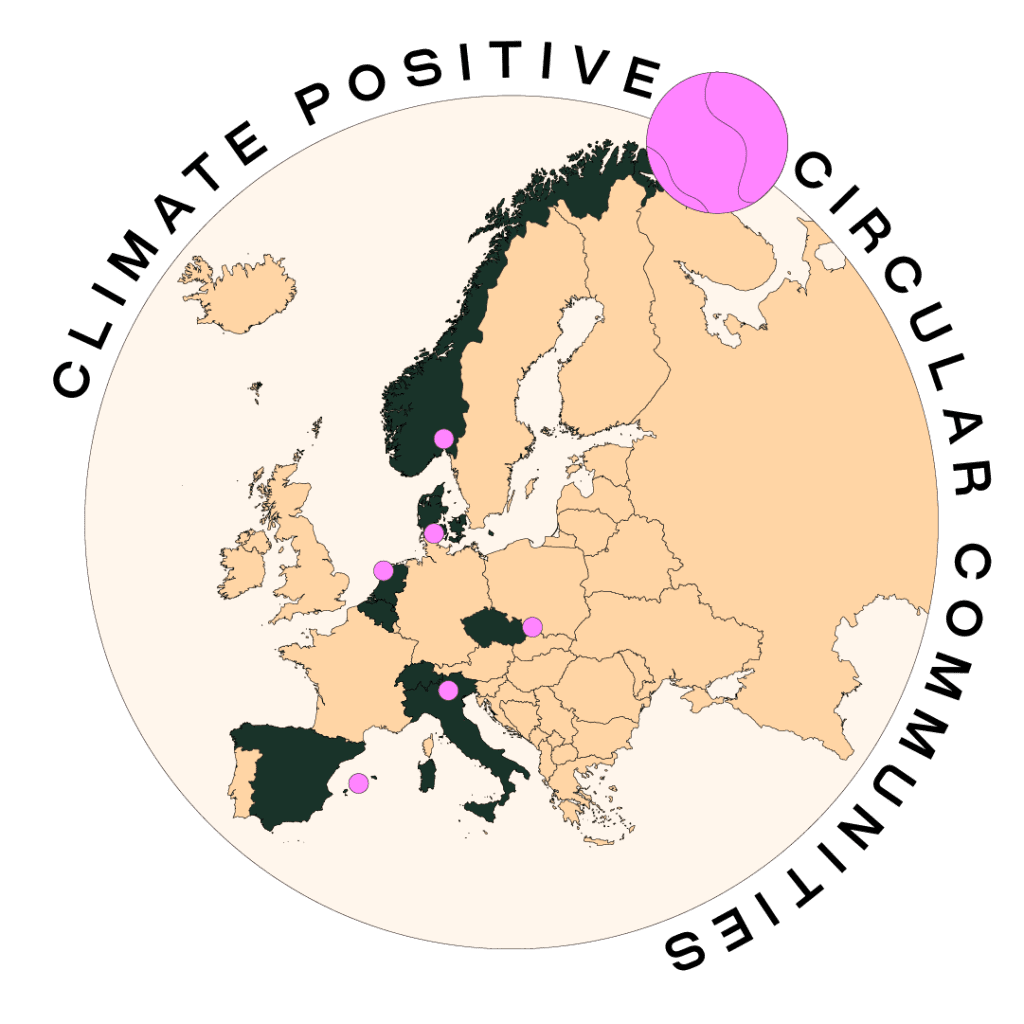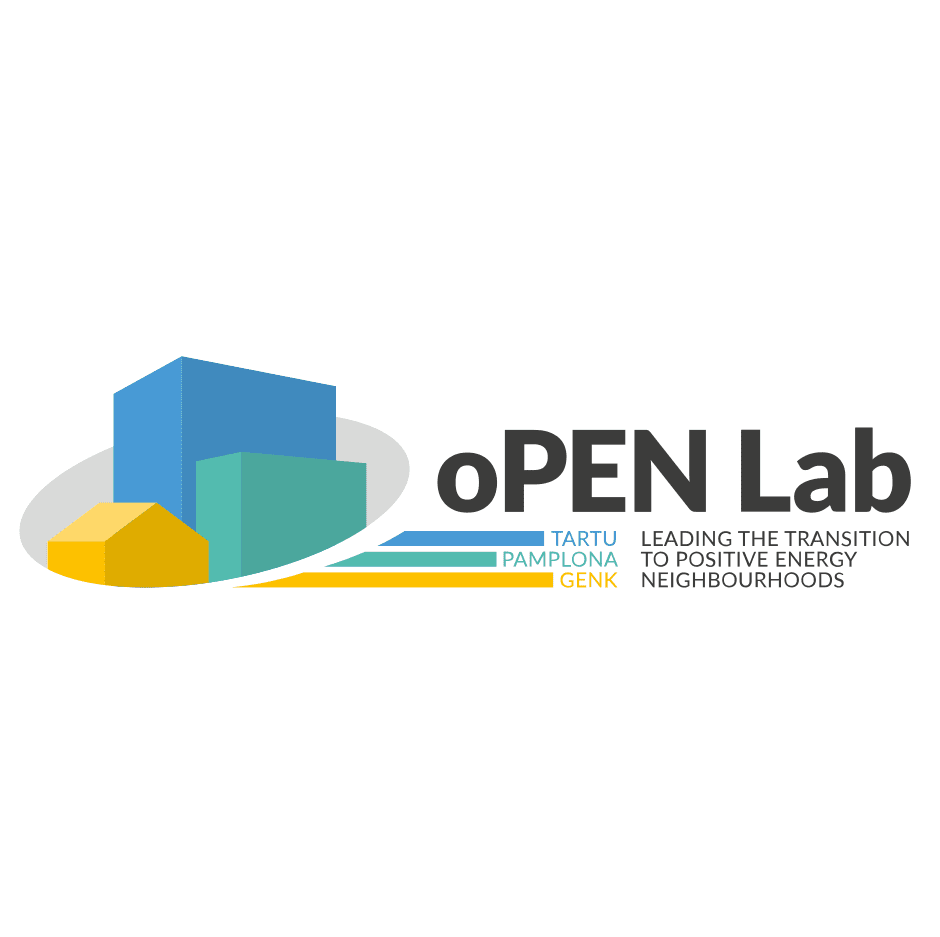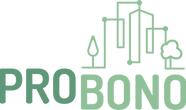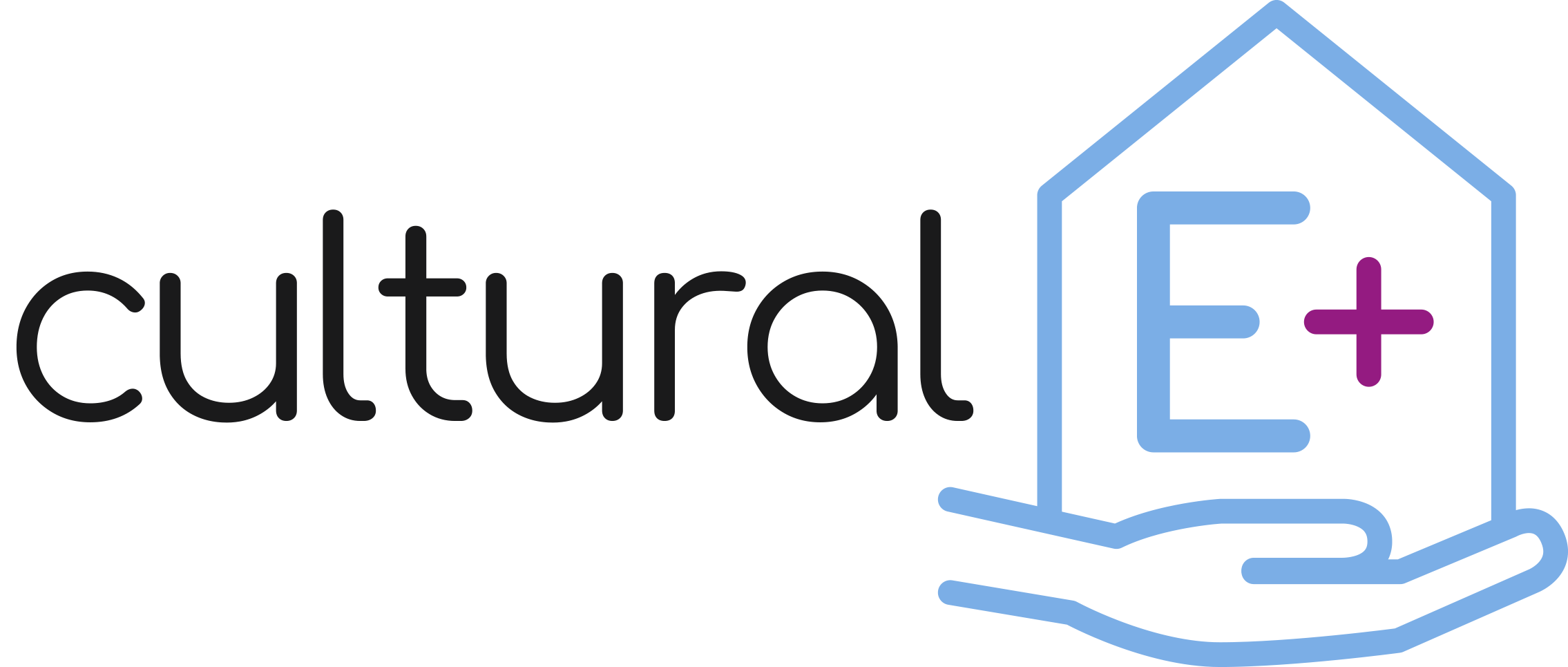Related Initiatives
Below you can find a network of EU projects and initiatives sharing the ARV vision and objectives.

Sister Projects

Building on the expertise of 33 partners, the EU-funded oPEN Lab project will revitalise urban areas across Europe and lead the transition of Positive Energy Neighbourhoods (PEN). Through activities in three open innovation living labs in Genk (Belgium), Pamplona (Spain) and Tartu (Estonia), oPEN Lab will identify commercially viable solutions to achieve positive energy urban environments, in line with the EU’s aim to be climate-neutral by 2050. The project will promote sustainable design tailored to neighbourhoods, seamless industrial renovation workflows, renewable energy generation combined with energy storage, urban service facilities, smart operation and life cycle thinking. The ultimate aim is to roll out a holistic and positive energy vision for neighbourhoods across Europe.

Imagine a people-focused European construction industry that works with a community of stakeholders to create sustainable positive energy and zero-carbon emitting Green Buildings and Neighbourhoods (GBNs). This is the vision of the EU-funded PROBONO project. It will establish a European multidisciplinary consortium consisting of construction actors, public asset service managers, municipalities, technology solution providers and experts to transform six European districts into GBNs. The project will provide strong examples of GBNs’ technological and social innovation implementation by focusing on building infrastructure and exploiting digitalisation and smart technologies. PROBONO will create GBN Strategic Planning Tools and provide evidence-based policy recommendations, standardisation actions, and robust adoption and commercialisation strategies. Project work will engage citizens in co-designing and co-delivering sustainable GBNs.
Related EU-funded Projects

The H2020 EU-funded project syn.ikia aims at achieving sustainable plus energy neighbourhoods with more than 100% energy savings, 90% renewable energy generation triggered, 100% GHG emission reduction, and 10% life cycle costs reduction, compared to nZEB levels. This will be achieved while ensuring high quality indoor environment and well-being. The project involves 13 partners from six countries and aims to enable the development of sustainable plus energy neighbourhoods in different climates, contexts and markets in Europe. Over the course of the project, four real-life plus-energy demo neighbourhood projects tailored to four different climatic zones will be developed, analysed, optimized and monitored, demonstrating the functionality of the plus-energy neighbourhood concept for the rest of Europe.

The H2020 EU-funded project Drive 0 wants to make deep renovation environmentally friendly, cost effective and more attractive for consumers and investors by enhancing a consumer-centered circular renovation. What is Drive 0 definition of a circular renovation? A circular deep renovation, which contributes to a circular built environment, is based on 100% life cycle renewable energy, and all materials used within the system boundaries are part of infinite technical or biological cycles with lowest quality loss as possible. The Drive 0 concept is based on developing circular deep renovation solutions and supporting consumer centred business models for 7 specific study and demonstration cases as real environments.

The H2020 EU-funded project Cultural-E aims at going a step beyond Nearly Zero Energy Buildings (nZEBs) towards the future of Plus Energy Buildings (PEBs). The team is approaching this topic by looking at climate and cultural differences in the use of residential buildings around Europe. By the end of the five years the project will have built four new Plus Energy Buildings in France, Germany, Italy and Norway. Research applied to the construction sector is more and more demanding nowadays in terms of energy efficiency, carbon emissions, sustainable resource use, life-cycle management, and indoor environmental comfort. Climatic factors, such as local temperature, weather, sun orientation, relation with the surroundings are integral parts of the design process because, inevitably, they influence the daily habits and how we consume energy. Studies have shown that a Norwegian uses a different amount of energy for cooking than a French, and an Italian heats his/her house in a different way than a German. Cultural-E will try to establish guidelines for designing PEBs in Europe taking into account these socio-cultural and climatic differences on order to enable a comprehensive optimisation of value/cost ratio of PEBs.

H2020 HOUSEFUL proposes an innovative paradigm shift towards a circular economy for the housing sector. The main goal is to develop and demonstrate an integrated systemic service (HOUSEFUL Service) composed of 11 circular solutions co-created by stakeholders in current housing value chain. The HOUSEFUL Service will aim at the circular management and efficient use of water, waste, energy and material resources for all stages of European building’s life-cycle. HOUSEFUL approach will be demonstrated at a large scale in 4 demo-sites in Austria and Spain, adapting the concept to different scenarios, including social housing buildings. The project’s solutions will be evaluated from an environmental (Life Cycle Assessment), economic (Life Cycle Cost) and social (Social Assessment) point of view. Over the course of the project, 10 European Follower buildings will be engaged with the support of a Collaborative Community of Housing Experts to replicate HOUSEFUL results and maximise the impact of the project.
Related Initiatives

The New European Bauhaus is a creative and interdisciplinary initiative that connects the European Green Deal to our living spaces and experiences. The New European Bauhaus initiative calls on all of us to imagine and build together a sustainable and inclusive future that is beautiful for our eyes, minds, and souls. Beautiful are the places, practices, and experiences that are: Enriching, inspired by art and culture, responding to needs beyond functionality; Sustainable, in harmony with nature, the environment, and our planet.; Inclusive, encouraging a dialogue across cultures, disciplines, genders and ages.
Sister Projects

Building on the expertise of 33 partners, the EU-funded oPEN Lab project will revitalise urban areas across Europe and lead the transition of Positive Energy Neighbourhoods (PEN). Through activities in three open innovation living labs in Genk (Belgium), Pamplona (Spain) and Tartu (Estonia), oPEN Lab will identify commercially viable solutions to achieve positive energy urban environments, in line with the EU’s aim to be climate-neutral by 2050. The project will promote sustainable design tailored to neighbourhoods, seamless industrial renovation workflows, renewable energy generation combined with energy storage, urban service facilities, smart operation and life cycle thinking. The ultimate aim is to roll out a holistic and positive energy vision for neighbourhoods across Europe.
Imagine a people-focused European construction industry that works with a community of stakeholders to create sustainable positive energy and zero-carbon emitting Green Buildings and Neighbourhoods (GBNs). This is the vision of the EU-funded PROBONO project. It will establish a European multidisciplinary consortium consisting of construction actors, public asset service managers, municipalities, technology solution providers and experts to transform six European districts into GBNs. The project will provide strong examples of GBNs’ technological and social innovation implementation by focusing on building infrastructure and exploiting digitalisation and smart technologies. PROBONO will create GBN Strategic Planning Tools and provide evidence-based policy recommendations, standardisation actions, and robust adoption and commercialisation strategies. Project work will engage citizens in co-designing and co-delivering sustainable GBNs.
Related EU-funded Projects

The H2020 EU-funded project syn.ikia aims at achieving sustainable plus energy neighbourhoods with more than 100% energy savings, 90% renewable energy generation triggered, 100% GHG emission reduction, and 10% life cycle costs reduction, compared to nZEB levels. This will be achieved while ensuring high quality indoor environment and well-being. The project involves 13 partners from six countries and aims to enable the development of sustainable plus energy neighbourhoods in different climates, contexts and markets in Europe. Over the course of the project, four real-life plus-energy demo neighbourhood projects tailored to four different climatic zones will be developed, analysed, optimized and monitored, demonstrating the functionality of the plus-energy neighbourhood concept for the rest of Europe.

The H2020 EU-funded project Drive 0 wants to make deep renovation environmentally friendly, cost effective and more attractive for consumers and investors by enhancing a consumer-centered circular renovation. What is Drive 0 definition of a circular renovation? A circular deep renovation, which contributes to a circular built environment, is based on 100% life cycle renewable energy, and all materials used within the system boundaries are part of infinite technical or biological cycles with lowest quality loss as possible. The Drive 0 concept is based on developing circular deep renovation solutions and supporting consumer centred business models for 7 specific study and demonstration cases as real environments.

The H2020 EU-funded project Cultural-E aims at going a step beyond Nearly Zero Energy Buildings (nZEBs) towards the future of Plus Energy Buildings (PEBs). The team is approaching this topic by looking at climate and cultural differences in the use of residential buildings around Europe. By the end of the five years the project will have built four new Plus Energy Buildings in France, Germany, Italy and Norway. Research applied to the construction sector is more and more demanding nowadays in terms of energy efficiency, carbon emissions, sustainable resource use, life-cycle management, and indoor environmental comfort. Climatic factors, such as local temperature, weather, sun orientation, relation with the surroundings are integral parts of the design process because, inevitably, they influence the daily habits and how we consume energy. Studies have shown that a Norwegian uses a different amount of energy for cooking than a French, and an Italian heats his/her house in a different way than a German. Cultural-E will try to establish guidelines for designing PEBs in Europe taking into account these socio-cultural and climatic differences on order to enable a comprehensive optimisation of value/cost ratio of PEBs.
Related Initiatives
The New European Bauhaus is a creative and interdisciplinary initiative that connects the European Green Deal to our living spaces and experiences. The New European Bauhaus initiative calls on all of us to imagine and build together a sustainable and inclusive future that is beautiful for our eyes, minds, and souls. Beautiful are the places, practices, and experiences that are: Enriching, inspired by art and culture, responding to needs beyond functionality; Sustainable, in harmony with nature, the environment, and our planet.; Inclusive, encouraging a dialogue across cultures, disciplines, genders and ages.

Subscribe to our Newsletter
Want to know more about the new generation of climate positive circular communities (CPCC)? Sign up to our bi-annual newsletter (no spam guaranteed)!